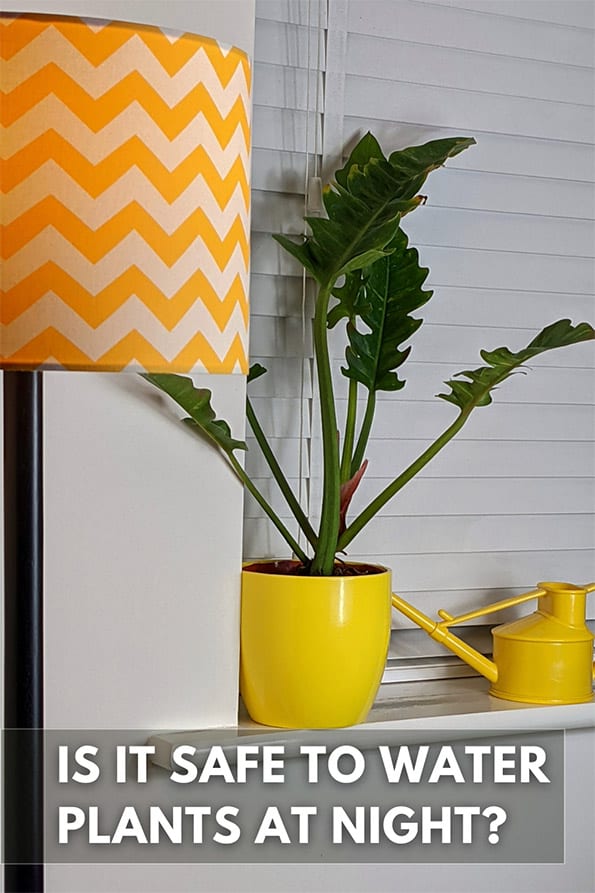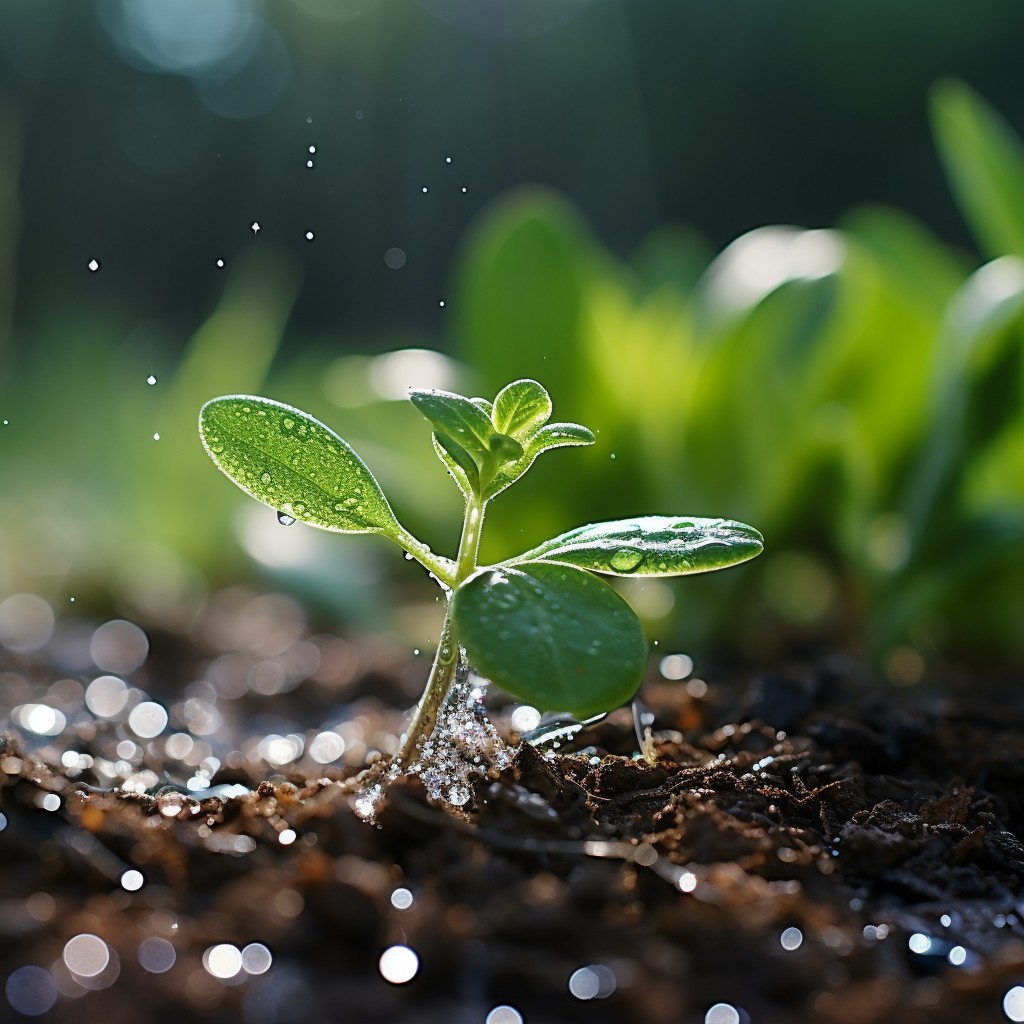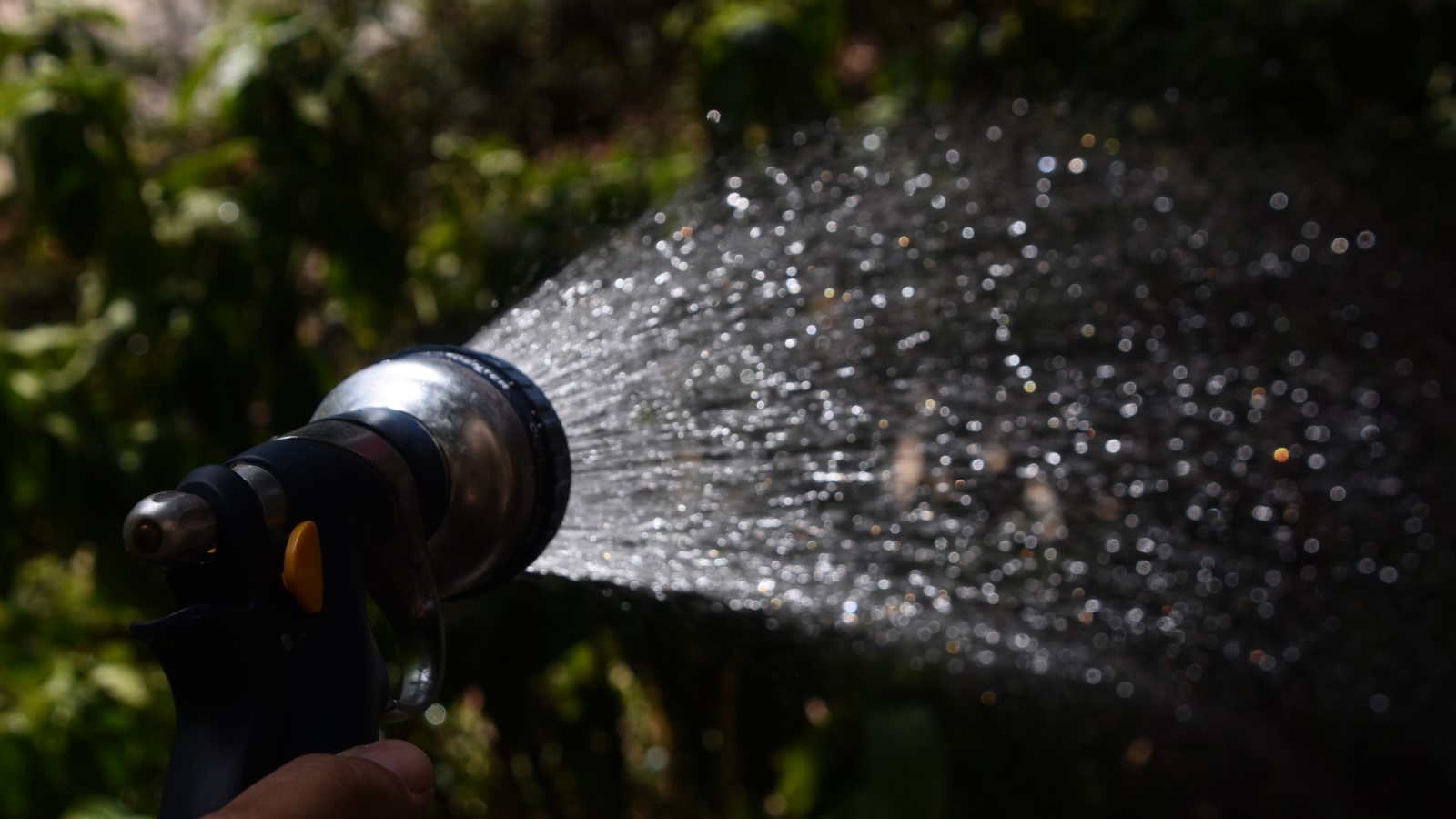Yes, you can water plants at night. Nighttime watering may lead to fungal growth and disease due to prolonged moisture.
Watering plants is essential for their health and growth. Many gardeners wonder about the best time to water their plants. While nighttime watering is possible, it has its drawbacks. Plants remain wet longer, increasing the risk of fungal infections. Early morning watering is often recommended.
It allows plants to absorb moisture before the sun gets too hot. This practice helps prevent water evaporation and ensures plants stay hydrated. Careful timing can lead to healthier plants and a more vibrant garden. Understanding the pros and cons of watering times can significantly impact plant health. Choose the right time for watering to promote a thriving garden.
Nighttime Watering Myths
Many gardeners debate if watering plants at night is good or bad. This has led to many myths and misconceptions. Let’s explore some common beliefs and what science says about them.
Common Beliefs
There are several common beliefs about watering plants at night. Some people think it causes plant diseases. Others believe it can shock the plants. Here are some popular myths:
- Myth 1: Watering at night always causes fungal infections.
- Myth 2: Nighttime watering leads to root rot.
- Myth 3: It shocks the plants and stunts growth.
Scientific Findings
Science provides a different view on nighttime watering. Research shows that the timing of watering is less important than the method. Let’s look at some key findings:
| Myth | Scientific Finding |
|---|---|
| Watering causes fungal infections | Fungal infections are more about humidity and poor air circulation. |
| Watering leads to root rot | Root rot happens due to waterlogged soil, not timing. |
| Watering shocks the plants | Plants are more resilient and adapt to watering times. |
Proper watering practices matter more than the time of day. Always ensure the soil drains well. This helps prevent root rot and fungal infections. Use a watering can or drip irrigation for better water control.
Pros Of Watering At Night
Watering your plants at night can offer several benefits. These advantages can help your garden thrive. Let’s explore some of these pros:
Water Conservation
Watering at night can help save water. During the night, temperatures are cooler. Less water is lost to evaporation. This means your plants get more water. You also use less water overall.
In areas with water restrictions, this is very important. Conserving water is crucial. It helps the environment and your wallet.
Reduced Evaporation
Watering at night means less water evaporates. The sun is not out to dry up the water. This helps your plants stay hydrated longer. Reduced evaporation also means you need to water less often.
Plants can absorb more water at night. This helps them grow stronger and healthier. Hydrated plants are less stressed and more resistant to disease.
Cons Of Watering At Night
Watering your plants at night might seem convenient. Yet, it has several drawbacks. These can affect plant health and growth. Let’s explore some of these cons.
Fungal Growth
Watering at night can lead to fungal growth. Plants stay wet for longer periods. This creates a perfect environment for fungi to thrive. The lack of sunlight prevents quick drying. Wet leaves and soil become a breeding ground for fungi. Common fungal diseases include powdery mildew and root rot.
| Fungal Disease | Cause |
|---|---|
| Powdery Mildew | Moisture on leaves |
| Root Rot | Excessive wet soil |
Pest Attraction
Night watering also attracts pests. Insects are drawn to moist environments. Wet soil and plants provide an ideal habitat. This increases the risk of pest infestations. Common pests include slugs, snails, and mosquitoes. These pests can damage your plants significantly.
- Slugs
- Snails
- Mosquitoes
To avoid these issues, consider watering your plants in the morning. This allows leaves and soil to dry during the day. It reduces the risk of fungal growth and pest attraction. Your plants will be healthier and thrive better.

Credit: www.ourhouseplants.com
Best Time To Water Plants
Knowing the best time to water plants is vital for their health. Timing can affect how well plants absorb water and nutrients. Let’s explore the benefits of watering in the morning and considerations for evening watering.
Morning Benefits
Watering plants in the morning offers numerous advantages. Here are some key benefits:
- Optimal Absorption: Plants absorb water better in the cool morning.
- Reduced Evaporation: Less water evaporates in the morning.
- Healthier Foliage: Leaves dry quickly, preventing fungal growth.
- Energy Boost: Plants get a hydration boost for the day.
Morning watering sets your plants up for success throughout the day. It ensures they have the moisture needed for photosynthesis and growth.
Evening Considerations
Watering in the evening has its own set of considerations. Here are some points to keep in mind:
- Cooling Effect: Evening watering cools down plants after a hot day.
- Evaporation Rate: Less water evaporates, making it efficient.
- Fungal Risk: Wet leaves overnight can lead to fungal diseases.
- Soil Moisture: Watering at night keeps soil moist longer.
Evening watering can be beneficial but requires careful attention. Wet foliage overnight can promote fungal growth, so aim to water the soil directly.
Both morning and evening watering have their pros and cons. Understanding these can help you choose the best time for your plants.
Effective Watering Techniques
Watering plants is essential for their growth. Many people ask if you can water plants at night. Understanding the best techniques can help your plants thrive. Here are some effective watering techniques to ensure your plants get the hydration they need.
Soil Moisture Check
Before watering, always check the soil moisture. Insert your finger about an inch into the soil. If it feels dry, it’s time to water. Overwatering can harm plants, so this step is crucial.
Using a soil moisture meter can also help. These devices measure the moisture level accurately. They are easy to use and provide instant results.
| Soil Condition | Action |
|---|---|
| Dry | Water your plants |
| Moist | Wait before watering |
Deep Watering
Deep watering ensures roots get enough moisture. Water slowly and thoroughly to allow water to penetrate deeply. This encourages roots to grow deep into the soil.
Avoid shallow watering as it only wets the surface. This can lead to weak root systems. Deep watering helps in building strong and resilient plants.
- Water at the base of the plant.
- Use a watering can with a narrow spout.
- Ensure water reaches at least 6 inches deep.
Deep watering is especially important during hot days. It helps plants stay hydrated longer. This technique also reduces the frequency of watering, saving you time and effort.
Tools For Efficient Watering
Watering plants at night requires the right tools. Efficient tools help save water and keep plants healthy. Let’s explore some tools for effective night watering.
Sprinklers
Sprinklers are popular for watering large areas. They evenly distribute water over the garden. There are different types of sprinklers.
- Oscillating Sprinklers – Move back and forth to cover rectangular areas.
- Rotary Sprinklers – Spin to cover circular areas.
- Impact Sprinklers – Use a hammer mechanism for adjustable water patterns.
Sprinklers are easy to set up. They can be connected to a timer. This makes night watering automatic and hassle-free.
Drip Irrigation
Drip Irrigation is ideal for precise watering. It delivers water directly to the roots. This method reduces water waste. It also prevents overwatering and fungal diseases.
Drip irrigation systems have several components:
| Component | Function |
|---|---|
| Main Line | Transports water from the source. |
| Emitters | Release water slowly to plants. |
| Filters | Prevent clogging in the system. |
Drip irrigation is best for gardens and flower beds. It is also suitable for potted plants. This system can be automated with a timer, making night watering easy.
Special Cases
Watering plants at night can be tricky. But there are special cases where it might be the best option. Let’s explore these scenarios.
Indoor Plants
Indoor plants live inside, away from the sun and wind. These plants don’t face the same risks as outdoor plants. Watering them at night can be okay. Here are some tips:
- Use a moisture meter to check soil dryness.
- Water the soil, not the leaves, to prevent mold.
- Ensure proper drainage to avoid root rot.
Drought Conditions
During droughts, water evaporates quickly in the heat. Watering at night can help save water. Here are some benefits:
| Time | Benefit |
|---|---|
| Evening | Less evaporation |
| Night | Soil absorbs more water |
Follow these steps:
- Water the base of the plant.
- Use a soaker hose for deep watering.
- Water slowly to let soil absorb moisture.
Remember, always adjust your watering schedule based on your plant’s needs.

Credit: www.interiorcompany.com
Expert Tips
Many wonder if watering plants at night is a good idea. Experts have tips to help you. Follow these guidelines for healthy plants.
Watering Frequency
Plants need water, but not too much. Use a schedule to help. Check soil moisture before watering. Wet soil means wait. Dry soil means water.
Watering at night can be okay. Make sure water does not stay on leaves. Wet leaves can cause mold. Aim water at the soil, not the leaves.
Seasonal Adjustments
Different seasons need different care. Summer needs more water. Winter needs less. Adjust your schedule for the season.
| Season | Watering Tips |
|---|---|
| Spring | Water when soil dries out. Check twice a week. |
| Summer | Water more often. Check every other day. |
| Fall | Reduce watering. Once a week is enough. |
| Winter | Water sparingly. Only water when soil is very dry. |
Monitor your plants’ needs. Adjust based on weather and plant type.

Credit: www.homesandgardens.com
Frequently Asked Questions
Can I Water Plants At Night?
Yes, you can water plants at night. However, it’s generally better to water them in the early morning. This allows the water to reach the roots before the sun evaporates it.
Is Night Watering Bad For Plants?
Night watering is not necessarily bad. However, it can increase the risk of fungal diseases. Damp conditions at night can promote fungal growth on leaves and soil.
Why Is Morning Watering Better?
Morning watering is better because it gives plants time to absorb water before the day’s heat. It also reduces evaporation and allows the foliage to dry out, which helps prevent diseases.
Can Night Watering Cause Root Rot?
Yes, watering plants at night can increase the risk of root rot. Excess moisture can remain in the soil, leading to poor root health and fungal issues.
Conclusion
Watering plants at night is generally safe. It can help conserve water and reduce evaporation. Ensure the foliage dries quickly to prevent fungal issues. Experiment to find the best routine for your garden. Regular monitoring will help keep your plants healthy and thriving.
Happy gardening!
